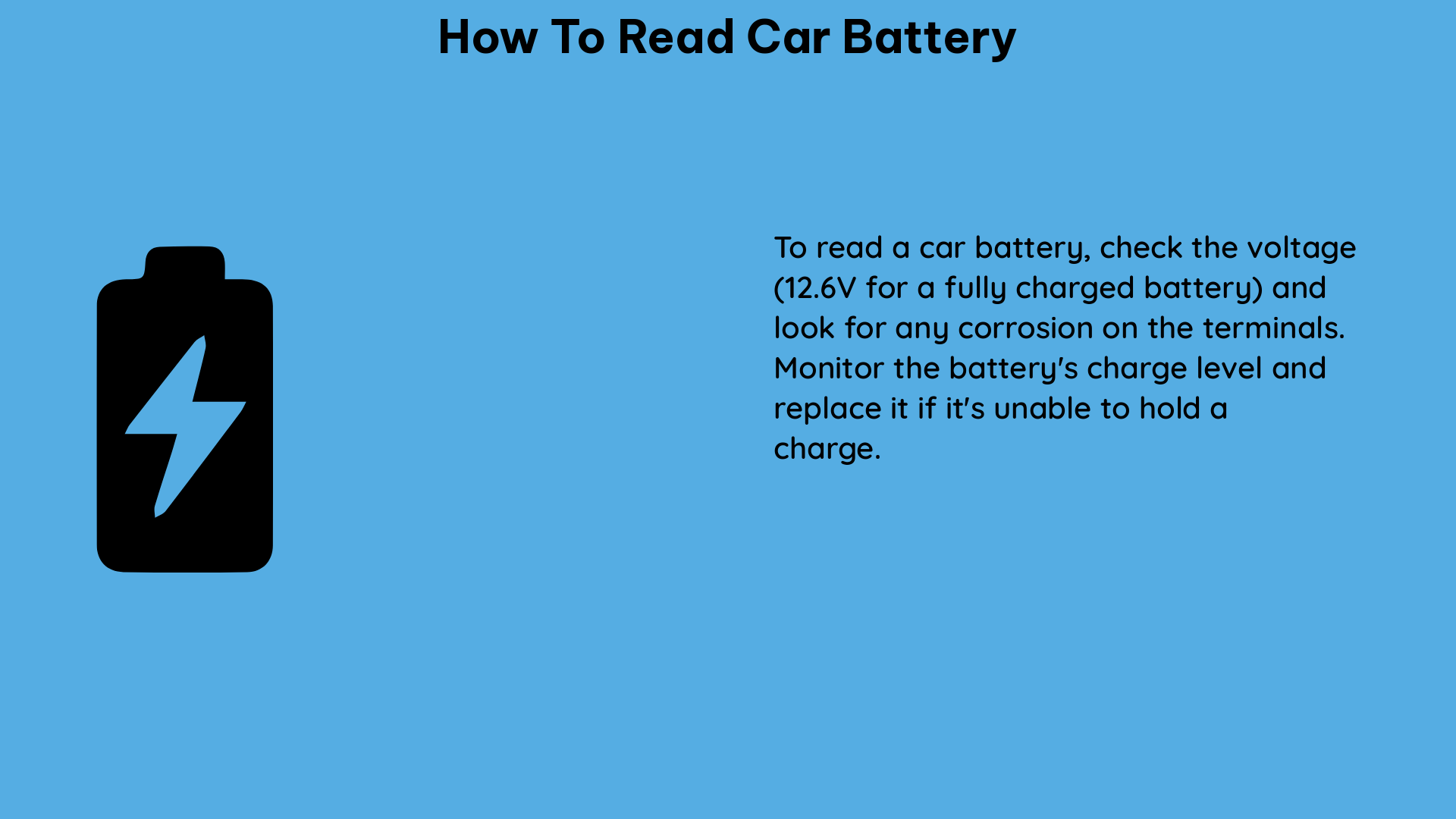Reading a car battery is a crucial skill for any vehicle owner or enthusiast. Understanding the technical specifications and interpreting the data can help you maintain your car’s battery, ensure it’s in good condition, and prolong its lifespan. In this comprehensive guide, we’ll dive deep into the key metrics you need to know to read a car battery effectively.
Watt-Hours: The Standard of Measurement
Watt-hours (Wh) are the standard unit of measurement for a car battery’s energy capacity. This metric represents the amount of energy the battery can deliver in one hour. For example, a 60Wh battery can provide 60 watts of power for one hour. Knowing the watt-hours of your car’s battery is essential for understanding its overall performance and how long it can power your vehicle’s electrical systems.
Energy Density: Packing More Power in Less Space

Energy density is the amount of energy a battery can store relative to its size or volume. This metric is typically measured in watt-hours per liter (Wh/L) or watt-hours per kilogram (Wh/kg). A higher energy density means the battery can store more energy in a smaller, more compact package. This is particularly important for car batteries, where space is often limited.
Specific Energy: Measuring Energy per Unit of Weight
Specific energy, also known as gravimetric energy density, is the amount of energy a battery can store relative to its weight. This metric is typically measured in watt-hours per kilogram (Wh/kg). A higher specific energy means the battery can store more energy per unit of weight, making it more efficient and potentially reducing the overall weight of the vehicle.
Impedance: Measuring Internal Resistance
Impedance is the measure of the resistance within a battery cell when stimulated by an electrical current. This metric is an important indicator of the battery’s overall health and performance. A lower impedance means the battery can more efficiently transfer energy, while a higher impedance can indicate issues such as sulfation or other internal problems.
Commercial Viability: Balancing Cost, Performance, and Safety
Commercial viability is a crucial factor in the development and adoption of car batteries. This metric takes into account various factors, including cost, size, performance, safety, and the ability to mass-produce the battery. Commercially viable car batteries must strike a balance between these factors to be successful in the market.
Testing a Car Battery
To test a car battery, you can use two main tools: a load checker and a hydrometer.
Load Checker
A load checker is a device that puts a heavy load on the battery and quickly shows the state of charge. While a load checker can provide a quick assessment of the battery’s overall condition, it doesn’t give you information about the condition of each individual cell or whether the battery is likely to hold a charge.
Hydrometer
A hydrometer is a tool that measures the specific gravity of the electrolyte in each battery cell. This information can tell you about the condition of each individual cell and whether the battery is likely to hold a charge. When using a hydrometer, it’s important to fill the tube twice in each cell and take your reading on the second fill to ensure accuracy.
Maintaining a Car Battery
When refilling battery cells, it’s crucial to use water only, never electrolyte, as this can damage the battery. Additionally, it’s important to never fill a cell higher than about 1/8 inch from the bottom of the indicator ring to prevent acid from gassing out and corroding everything it touches.
Conclusion
Reading a car battery requires a deep understanding of its technical specifications and how to interpret them. By mastering the key metrics, such as watt-hours, energy density, specific energy, impedance, and commercial viability, you can ensure your car’s battery stays in good condition and lasts as long as possible. Additionally, knowing how to properly test and maintain your battery can further extend its lifespan and keep your vehicle running smoothly.
References:
– 8 Battery Metrics That Really Matter to Performance
– Car Batteries 101
– Understanding the Battery Report on My Vehicle

The lambdageeks.com Core SME Team is a group of experienced subject matter experts from diverse scientific and technical fields including Physics, Chemistry, Technology,Electronics & Electrical Engineering, Automotive, Mechanical Engineering. Our team collaborates to create high-quality, well-researched articles on a wide range of science and technology topics for the lambdageeks.com website.
All Our Senior SME are having more than 7 Years of experience in the respective fields . They are either Working Industry Professionals or assocaited With different Universities. Refer Our Authors Page to get to know About our Core SMEs.